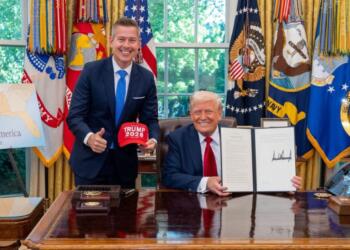
The distribution of public spending , the fiscal deficit and industrial policy with a comprehensive approach were the topics addressed by specialists at the table Non-commercial economic policy in the United States and Mexico in an economic perspectives seminar, in which Alejandro Werner , founding director of the Georgetown Americas Institute , estimated that Mexico could experience a recession this year.
“In 2025 we will have a recession, at the end of the day, in every change of government we have had a reduction in growth of almost two percentage points, we will have it again, this is exacerbated by the United States’ negotiation with the reform of the Judicial Branch, it is very likely that we will see negative growth or two or three negative quarters,” he added.
The specialist also pointed out that he is concerned about the risk of policies that may emanate from Morena , since they represent a higher risk than those coming from outside.
Although he agreed with what was stated by Marcelo Ebrard , head of the Ministry of Economy , that Mexico has enough arguments to move forward in the next review of the Treaty between Mexico, the United States and Canada (T-MEC) , although there are issues to be addressed.
He considered that the Bank of Mexico (Banxico) should continue its trend of reducing interest rates and he believed that it will be difficult for President Claudia Sheinbaum to reduce public spending. In addition, he considered it probable that the fiscal reform that the country requires will come, although he hopes that it will be preventive and not as a reaction of the financial market.
In the absence of tax reform, our country could lose its investment grade, which would affect several sectors, in addition to leading to a significant fiscal deterioration, Werner said.
At the event organized by the Autonomous Technological Institute of Mexico (ITAM) , Valeria Moy , director of the Mexican Institute for Competitiveness (IMCO) , said that it is necessary to consider an industrial policy with a comprehensive vision.
He said that industrial policy is relevant to the industry and pointed out that in Mexico trade policy was used as a synonym for industrial policy, however, the productive sector was not strengthened and the link between national producers and supply chains was not reinforced, among other factors.
Current industrial policies suggest that countries need to give their industry a more sustainable approach and put people at the centre, as well as improve their quality of life, he stressed.
The priority of this type of policy, which must take a broad view, is to increase added value for the country. “I don’t know if we are clear about what we want to do with industrial policy,” Moy stressed.
In turn, Jorge Suárez-Vélez , general director of Americana Partners International , pointed out that a 2.0 version of the president-elect of the United States, Donald Trump , is coming , so the next tenant of the White House has well defined what he is going to do.
“What could be very problematic is that the United States has a huge level of public debt and fiscal deficit, which, when added to what is happening internationally, should raise questions about what is happening in the financial markets,” he said.
The executive said that among the things that Trump proposes there are some that could be beneficial, since the northern neighbor is suffering from bureaucratic excesses.
Comment and follow us on X: @Eliseosfield / @GrupoT21














